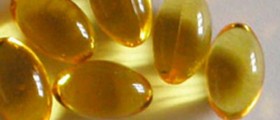
There has been a lot of talk about positive effects of fish oil on irregular levels of triglycerides. Some experts claim that fish oil is able to lower high triglyceride levels and thus reduce the risk of cardiovascular problems and diseases.
About Fish Oil
Fish oil is obtained from fatty tissues of fish like sardines, salmon, mackerel and trout, which are often called “fatty fish”. This oil has many uses, but the science today concentrates especially on its ability to improve cardiovascular health. This is mainly because of the high content of omega-3 essential fatty acids.
Fish actually do not produce omega-3 fatty acids in their body, they receive it from the food they ingest, namely the microalgae. Those acids are very beneficial for human health, especially for brain function, and they reduce the chance of heart attacks and cancer. They keep inflammation at bay and prevent blood clotting. In addition, they lower the blood pressure, reduce the formation of plaque clogging blood vessels and reduce the rate of triglyceride formation in the liver.
About Triglycerides
Triglycerides are simple molecules of glycerol combined with three molecules of fatty acids. They are found in animal and vegetable fats, as the main constituents. The body converts unused calories into triglycerides and stores them in the fatty tissue and fat cells. They stay there until the body needs energy, and then it releases hormones that convert triglycerides back into energy.
The levels of triglycerides can rise if a person eats too much fatty foods. High triglyceride levels (200 to 499 mg/dL) cause fat depositions on the walls of arteries, and lead to their hardening, which consequently leads to atherosclerosis and heart attack.
The levels of triglycerides in blood can be checked by running simple blood tests.
Fish Oil and Triglycerides
There are many ways to lower triglyceride levels. Dietary changes and exercise are the main ones, and they are even more effective if combined with fish oil supplements.
Unlike many other supplements, fish oil has been extensively analyzed and its effects on triglyceride levels have been scientifically confirmed. In fact, the American Heart Association has recommended taking two to four grams of omega-3 fatty acids per day for an extended period, which can reduce triglyceride levels by 40%.
Fish oil is widely available in drug stores and pharmacies as an over-the-counter supplement, and it can be found in bigger supermarkets too.
It is important to know that fish oil is not a wonder oil for eliminating triglyceride problems. The only way to control those levels is to eat properly and work out regularly, and the fish oil is there to help in the process.

















Your thoughts on this
Loading...